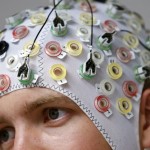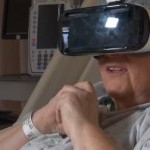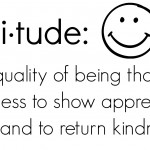
The big question about biohacking is, what is it? That’s a question my editors and my friends all asked me as I prepared a story for the PBS NewsHour on this new biology term. And when I answered them, they still didn’t quite get it. So I’ll try again, with some help from the folks I talked to in recent weeks.
Biohacking is a fairly new practice that could lead to major changes in our life. You could it call citizen or do-it-your-self biology. It takes place in small labs — mostly non-university — where all sorts of people get together to explore biology. That could mean figuring out how the DNA in plants affects their growth, or how to manipulate genes from another source to make a plant glow in the dark. It often is aimed at producing a product, like the chairs and building blocks that artist Philip Ross makes by feeding mushrooms a meal of sawdust or peanut shavings. It is experimenting on the cheap, usually without the benefit of a fancy university laboratory, and it often involves DNA and genes. If you don’t know enough biology to take part at first, you learn it along the way.
Ron Shigeta runs Berkeley Biolabs, a biohacking site in Berkeley, California, where dozens of would-be biologists gather frequently to hack around. He says biohacking is “a freedom to explore biology, kind of like you would explore good fiction.” As for the hacking part, “hacking is kind of like the freedom to sort of dig deep into something, just because you’re interested in it. … The whole idea of biohacking is that people feel entitled, they feel the ability to just follow their curiosity — where it should go — and really get to the bottom of something they want to understand.”
“The whole idea of biohacking is that people feel entitled, they feel the ability to just follow their curiosity — where it should go — and really get to the bottom of something they want to understand.”But hacking also has a negative connotation; when someone hacks your computer, you want to send him or her to jail. But that’s not exactly what biohacking is. Drew Endy, a professor of bioengineering at Stanford, who considers himself a biohacker, says “I come from a tradition where hacking is a positive term, and it means learning about stuff by building, and trying to make things and seeing what happens.”
And Eri Gentry, who founded the Silicon Valley biohacking venue BioCurious, explains further: “The word hacker comes from MIT where hacks would be cool little tricks that you would play on each other, so when you’re done with your homework, you’re staying up all night, and you’ve got to have something to do, so they might coat the ceiling or the roof of a building in tin foil. So this was a hack, and hackers came to be known in the 60s and 70s as the guys who were making the first computers.”
Yet another concept of hacking comes from a totally different source. Dave Asprey, a computer security guy, considers himself a biohacker. Basically he hacks into his own body. Here’s what he says: “There are two perspectives on biohacking. One is that biohacking is something you do to biology, outside of yourself; you’re going to change a cell; you’re going change an amoeba and make it glow in the dark. The other perspective on biohacking, the one where I spend my time, is that you can hack your own biology, and you can gain control of systems in your body that you would never have access to.”
Asprey — who has received attention online and at conferences — says he has used biohacking and new technical measurement tools and a low-toxic coffee he produces (Bulletproof) to alter his cognition, his weight and his general health. He takes supplements, applies electricity to his brain and his muscles, to improve his body and his mind.
He has not had his work evaluated by peers or duplicated by scientists, or published in scientific journals. But he maintains that he “is a professional biohacker, so I spend most of my time sharing what I’m doing with people and I write about it online.”
Whether Asprey belongs in the category of biohacker, is unclear. But Gentry of BioCurious would admit him to the club.
“I see a distinct difference between the biohacking that Dave does and the biohacking that we’re doing. … But if biohackers like Dave Asprey want to tinker with their own bodies, that’s where we draw the line in the lab. … Dave is interested in making himself an optimal human being, and much credit to him,” he said. “I think what he does is great.”
Which gets us back to the original question: What is biohacking? Since it’s a citizen-run pastime, you decide.









